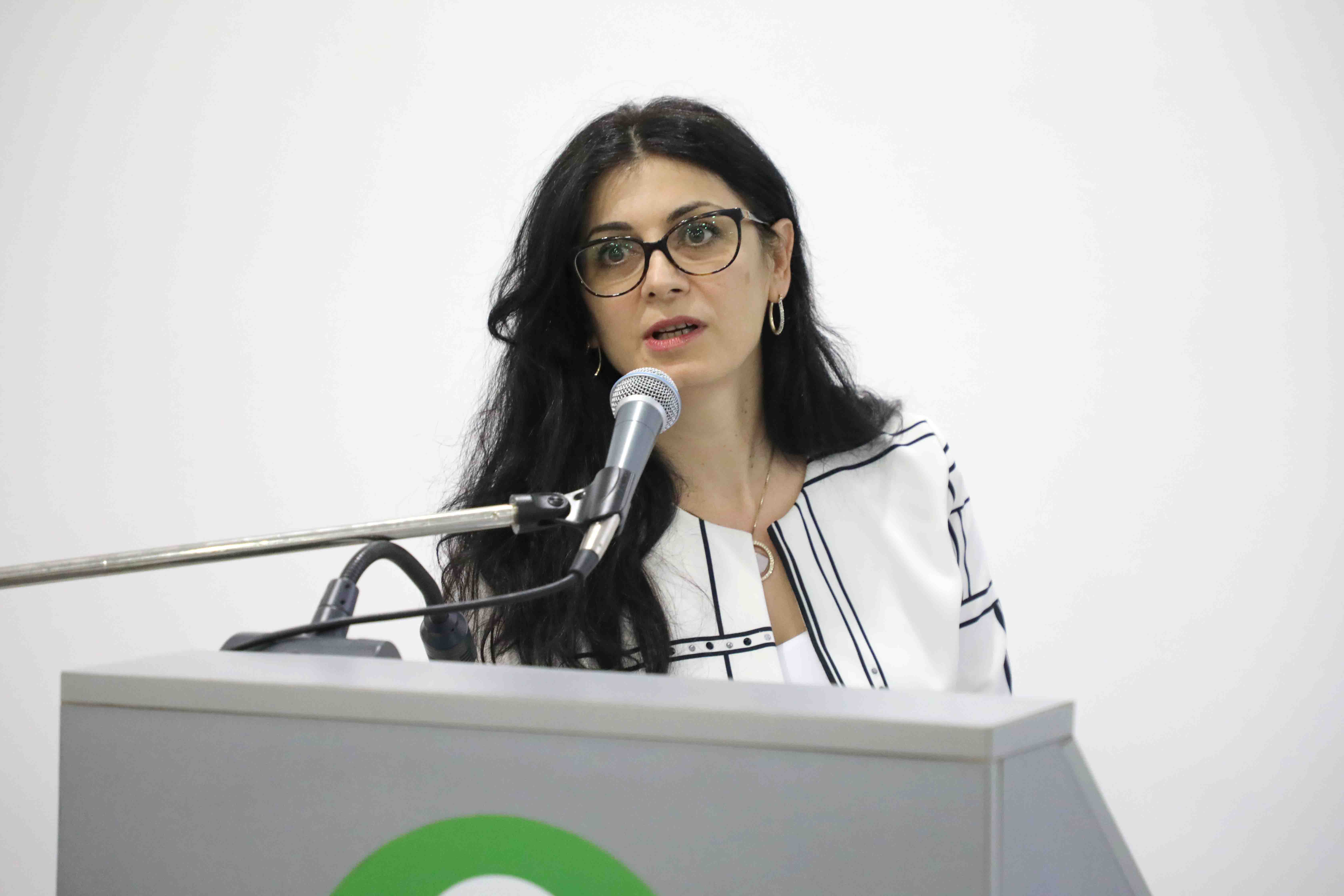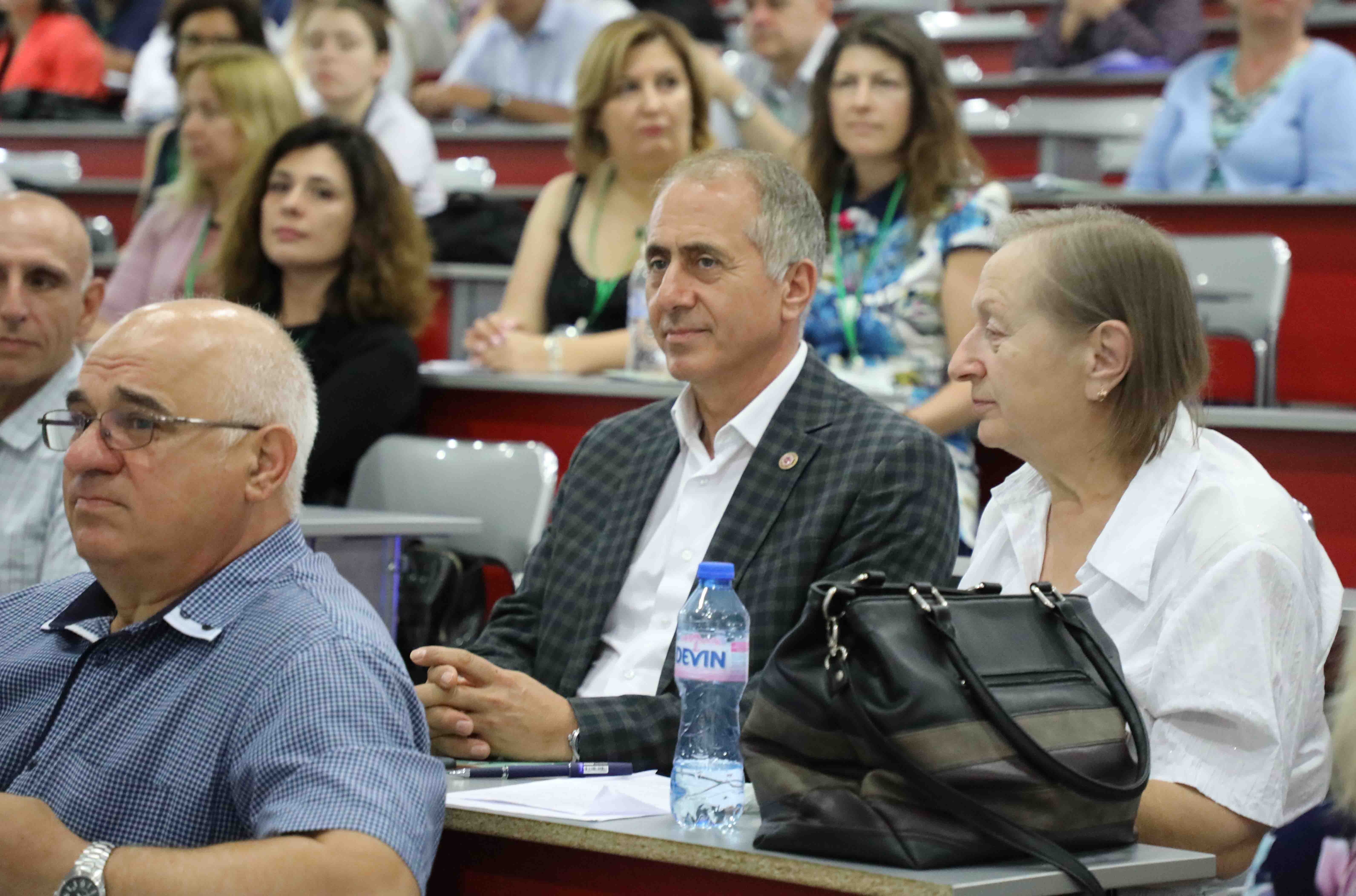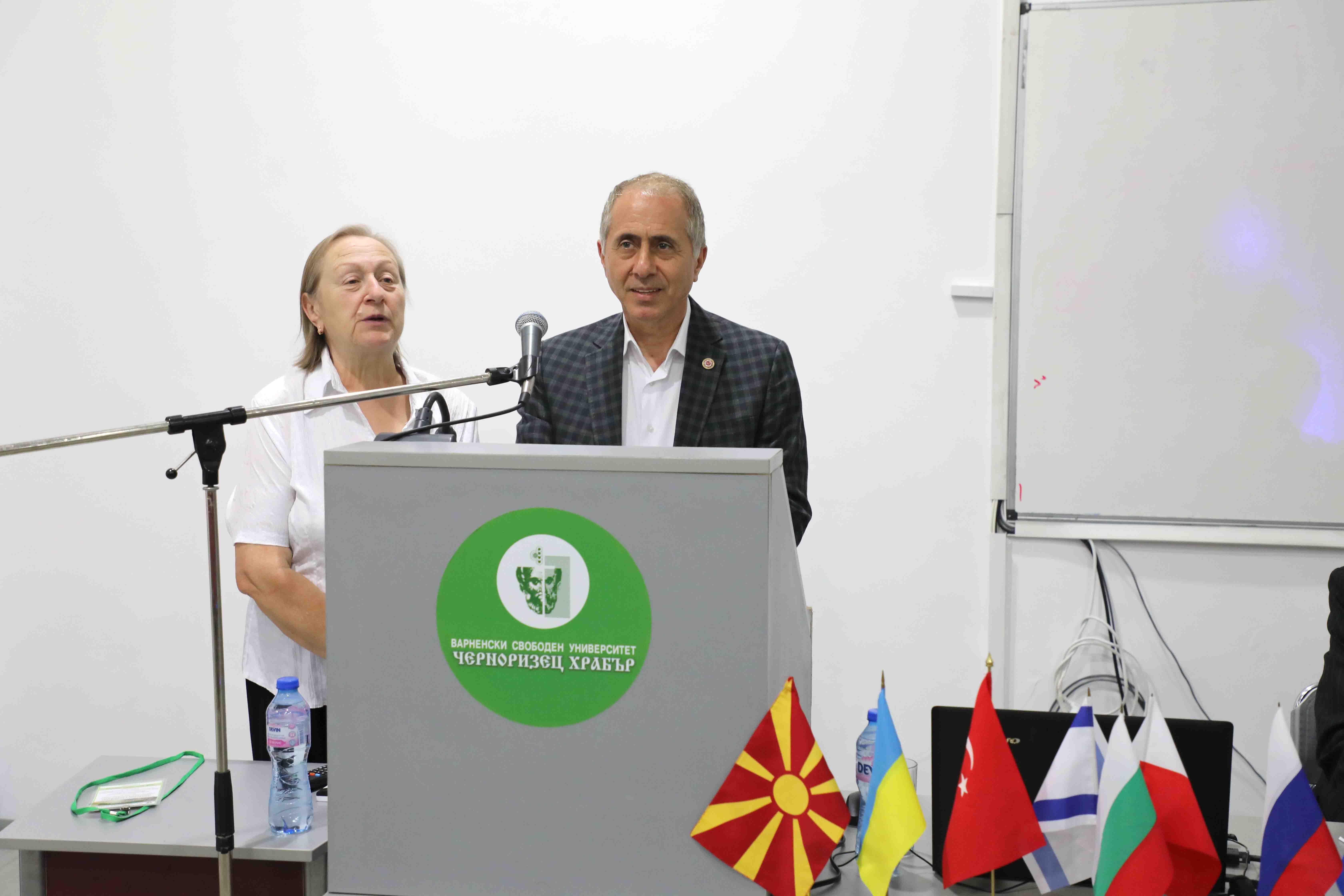VFU "CHERNORIZETS HRABAR" OFFERED THE ESTABLISHMENT OF A SCIENTIFIC CONSORTIUM WITH UNIVERSITIES FROM THE BALKAN COUNTRIES
22 June 2019
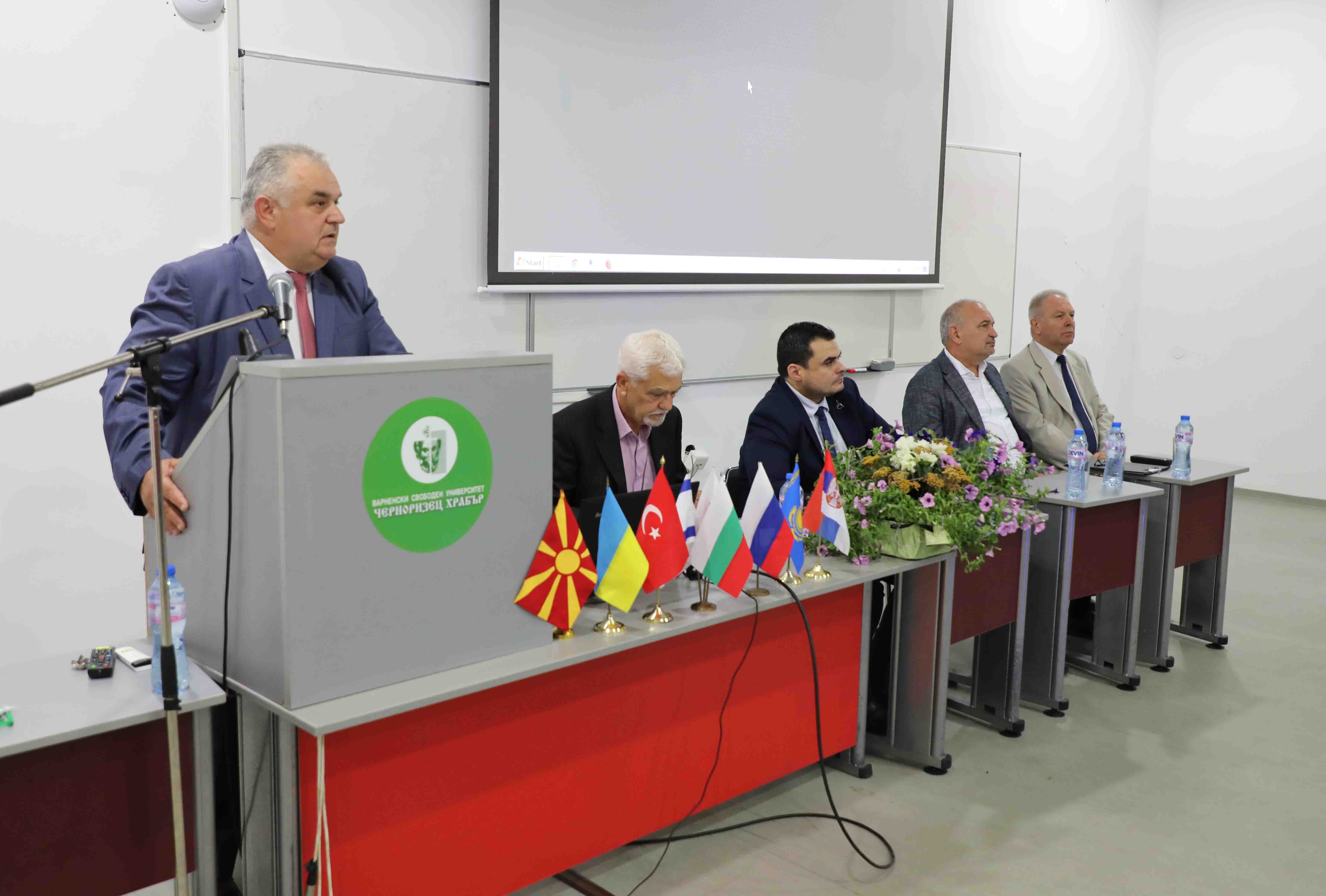
The idea of establishing a consortium of universities from the Balkan countries to put a scientific "diagnosis" on the state of the Balkans as a result of the fourth industrial revolution is being discussed at the Xth Jubilee Summer Scientific Session at Varna Free University "Chernorizets Hrabar". The International Conference "The Fourth Industrial Revolution and the Balkans" is organized by the Faculty of Law at the University. Leading scientists from the country and abroad discuss legal issues of economic relations as well as national security and scientific diplomacy in the Black Sea region. The XVIII International Scientific Conference "Applied Psychology - Opportunities and Prospects" - the most important forum in the country in the sphere of psychological knowledge, is held within the framework of the event.
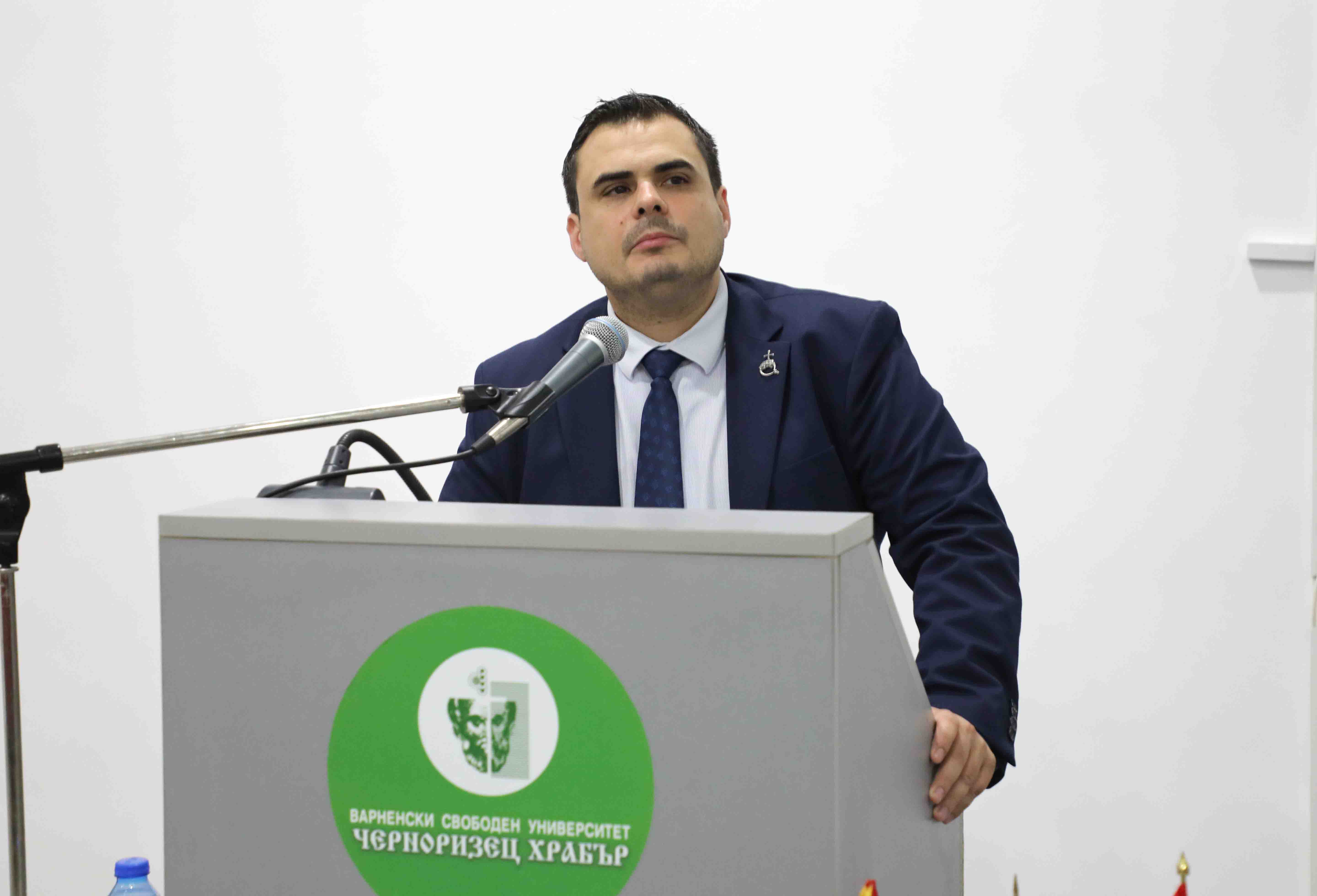
Special guests of the Summer Scientific Session are the Deputy Minister of Education and Science - Assoc. Prof. Peter Nikolov, and the Deputy Minister of Justice Prof. Nikolay Prodanov, as well as rectors and leading lecturers from universities from nine countries - Turkey, Russia, Ukraine, Israel, Poland, Northern Macedonia, Serbia, Lebanon and Kazakhstan. The participants and guests at the conference were welcomed by Prof. Tamer Dodurka, Rector of Rumeli University in Istanbul, and today the event will include the Vice Rector of the Moscow State Institute of International Relations (MGIMO) - Prof. Evgeniy Kozhokin. The Deputy Mayor Peycho Peychev greeted the participants on behalf of the mayor of Varna Municipality.
"Varna Free University is not only one of the most dynamically developing private universities in Bulgaria, but also an educational institution that is capable of putting the right questions," said the Deputy Minister of Education and Science Assoc. Prof. Peter Nikolov. According to him, the digital revolution is directly related to solving the big problem facing societies - will they be able to enter the new age as a whole, preserving their characteristics or will break down. "A minority of societies will make the most of technological progress, science and industry, and another will be marginalized", he says. "The responsibility for how Bulgaria will go through this problem lies entirely on the education system," said Assoc. Prof. Nikolov.
"The Balkans are interesting as a laboratory base for exploring the processes that are happening in the modern world as a result of the fourth industrial revolution," said in his plenary report "The Balkan Risky Society as an Organized Irresponsibility" Prof. Dr. Petar Hristov, Rector of Varna Free University. He said that there is a consensus among universities from all Balkan countries on the establishment of a scientific union that will deal with the study of economic, management, legal, demographic and migration issues, etc.
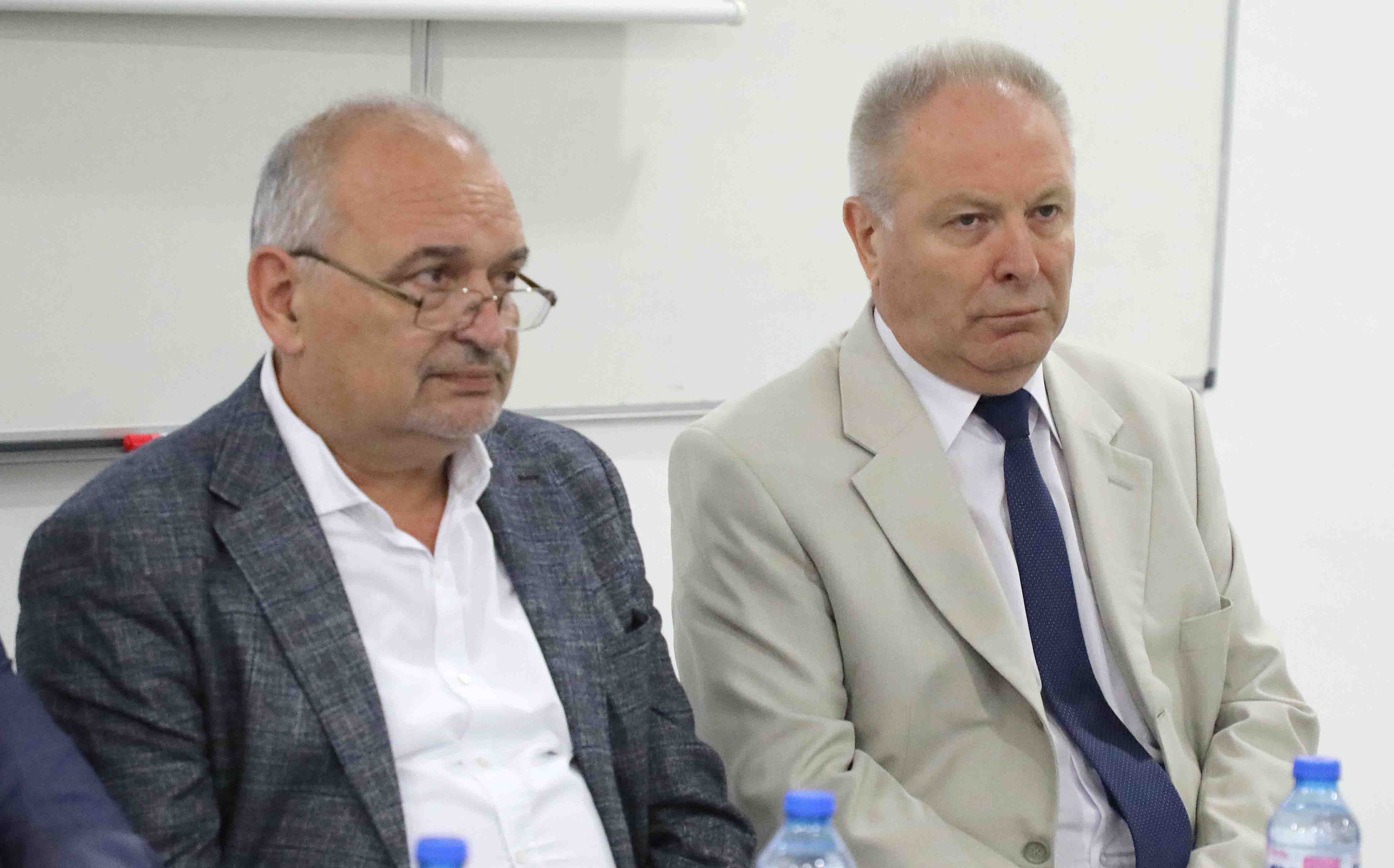
During the conference a plenary report on the "Challenges to the Labor Market and the Education" was presented by Prof. Sc.D. Anna Nedialkova - Chairperson of the Board of Trustees of VFU "Chernorizets Hrabar". Prof. Dr. Lyudmil Georgiev - a lecturer at VFU and a specialist in the field of psychology of religions and comparative cultural psychology, reported the topic "Challenges to Balkan Cultural and Ethnic Traditions".
The International scientific conference "The Fourth Industrial Revolution and the Balkans" continues today in three panels - "Legal Issues of Economic Relations in the Black Sea Region", "National Security and Scientific Diplomacy in the Black Sea Region" and "Applied Psychology - Opportunities and Perspectives".
The University will host a master class in psychoanalysis and psychosomatic research, led by Dr. Irina Mihailoshina - a certified specialist at the European Confederation of Psychoanalytic Psychotherapy, coordinator of the Crisis Center of the Ukrainian Association of Psychoanalysis, lecturer at the International Institute of Depth Psychology.
The conference will also present student scientific research, including a survey on young people's perceptions of social phenomena - radicalism and violent extremism
